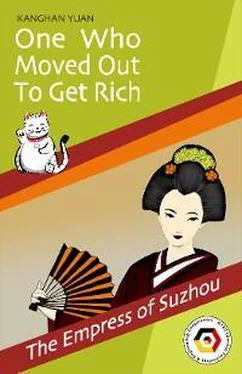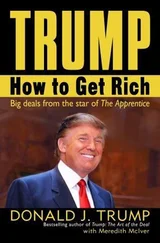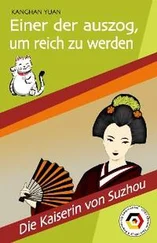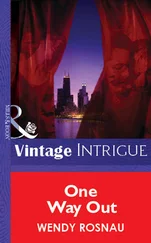“You are right; it is like giving a piece of meat to a dog and expect it to return to you easily”, she says.
It is a snowy Sunday morning; Hong is still sleeping. So, I have to go jogging alone. I call my driver to go to the nearest police station, to record a statement about the accident that Hong was involved in with a dog. That way, she could go to the insurance company to fill a claim form. The driver does exactly that. I later give him a gift to thank him. That gift had been given to me by my bank two days ago, thanking me for being a loyal customer.
Everything is running smoothly. I clean up my office, sort out the paperwork and shred the ones that I did not need. Hong is busy on her laptop sitting opposite me. She always reminds me of thoroughly checking every piece of paper before I shred them. I wondered! One time she is complaining about savings, another time about stuffing the house with smelly wines, and now I should be careful with what I do and do not shred. Is this not going too far, is she not one of those typical control freaks? I asked myself.
After dinner, I grab a phone and call Daniel in Germany, and Hong calls her mother. We go to bed early. My water bottle is already full to comfort me in bed since it is cold.
On Wednesday, Hong had to travel to Suzhou to attend a monthly DUSA meeting, to meet acquaintances and her work colleagues, and to exchange news and ideas. DUSA is European Business Association, founded twelve years ago by many Germany companies to facilitate the initiation of business in China through information, workshops, and training courses for small and medium-sized German companies.
In addition to her work at the university, Hong is a freelance lawyer in her law firm in Suzhou. One of the benefits is her membership card that allows her free parking, of which she takes advantage. Later, that day, I take a flight from Shanghai Hongqiao Inland Airport, to visit a supplier in Qingdao, in Shandong province about five hundred kilometres away. The business trip is supposed to last for two days. I promise Hong that I would be right back, after the tour.
As usual, when going on such trips, my colleague, a Chinese buyer and I, are picked up from the airport in a limousine, to be taken to the supplier’s factory outside the city. Being a Hi-Tech field, we had to do everything thing in its precise measurement and standard.
I am, however, dismayed to find out that the plate we commissioned, is much thicker than that of the competition. I also complain about the drawing, not being suitable for turning parts.
My colleagues point out that it is due to the standardisation efforts of the company. I however believe that losing material cost-share is much higher than any savings on standardisation. I also note that the rotary part produces long chips, and with the new material, a worker would be removing the waste every too often. Otherwise, they would wrap around the chisels, which would later be dangerous.
My buyer also tells me that their measurements for specifications come from the headquarters that Chinese designers have no permission to anything to change the specifications. I turned a blind eye on this type of “copy and paste” procedure. I wondered why the buyer would have an interest in protecting the supplier other than myself! I realise that he did not want to tarnish his name and the relationship of a company. He have which he had built it years, and that he wants to have a pleasant working life, without any stress.
After the business meeting, we are invited to dinner by the supplier. We sit at a round table in the pre-ordered and preheated adjoining room of a traditional restaurant. I order warm yellow rice with less alcoholic content than red wine or brandy. It keeps the mind flowing and has no hangover side effect. Its warmth is pleasant in a cold season. I call the waiter, give her a camera to take a memorable group photo of all of us at the dinner table. I return to my hotel room after dinner, still with heartburn until the morning after. I later realised that the previous night's dinner had contained a lot of artificial flavours and enhancers, which are always the cause of my heartburn. When I am having breakfast with my colleagues in the morning, I tell them about my heartburn. One of them replys confidently. "Glutamate is a Chinese tradition; it does not cause problems to us, our bodies have had it for centuries, yours is not yet".
The weather is cold. Chinese drivers keep their car engines running to warm up interior space, for the guests and for them not
to freeze. I am opposed to that though because in my view, it only adds to high levels of pollution. No wonder the levels are too high in the country. Everyone thinks about him or herself, but not the environment. They just talk about finding solutions, no one seems to care. It is business as usual.
After breakfast, we go to a sub-supplier where I record data from the plate's manufacturing process and discuss cost-cutting ideas. On the way back, we talk a lot about the cultural differences between the East and the West. None of us seem to understand the other.
"I know of many German companies that are not bothered about negotiating, that is why they make losses in China", remarked my buyer.
"That is true by the way, probably, because they lack the necessary know-how, about the way business, is done in China". I answered.
I returned to my hotel room still with heartburn problems. I later realised that the previous night's dinner had contained a lot of artificial flavours and enhancers.
When taking breakfast with my colleagues in the morning, I told them about my heartburn. "Glutamate is a Chinese tradition; it does not cause problems to us; our bodies are used to it for centuries; yours is not yet". One of them said confidently.
The weather was cold. Chinese drivers keep engines of their cars warming, for the guests and indeed for them not to freeze. I am opposed to this because in my view it only adds to high levels of pollution n the country. No wonder there are high levels of pollution in the country. Everyone seems to be thinking only about themselves, but not the environment. They say a lot about finding solutions; no
one seems to care; it is like business as usual. After breakfast, we went to a sub-supplier where I record down data from the plate's manufacturing process and discuss cost-cutting ideas. That afternoon while going back to the airport, we talked a lot about the cultural differences between the East and the West, about which none of us seemed to understand the other.
"I know of many German companies that are simply not bothered about negotiating, that is why they make losses in China", remarked my buyer.
“That is true by the way; perhaps this is because they lack the necessary know-how, about the way business, is done in China", I replied.
I have personally come across many cases, where I get instructions from our headquarter in Germany, to do things the way they want. What I also know is that Germans always want to bang their heads against the wall. The Chinese, on the other hand, do it differently, they are more pragmatic and flexible. I am now used to the Chinese way of doing business. I am not as stubborn as I used to be before.
On the way back home, I buy my wife a present. I decline an offer by the supplier to go for lunch after all the journey was only one and a half hours away. I do not have anything to eat during the flight. I will have to wait until I reached home; hopefully, a delicious meal is waiting for me there.
Hong’s parents have already arrived at our house in Taicang, to work together to celebrate with us, the end of the fifteen-day Spring Festival with the Lantern Festival. Hong’s mother Wu Meilan has already decorated the house with pretty lamps, to make it easier for the ghosts to get home. They also light candles outside and lanterns along the streets. It is the tradition. I happily hand gifts over to Hong, for tomorrow’s Valentine’s Day. Presents included, an umbrella and a delicacy from Qingda called “ Guotie ”, the roasted dough bags, with meat or vegetable filling. What Germans have as a pancake at the Berlin Karnevals (carnival of cultures) festival, the Chinese have
Читать дальше












